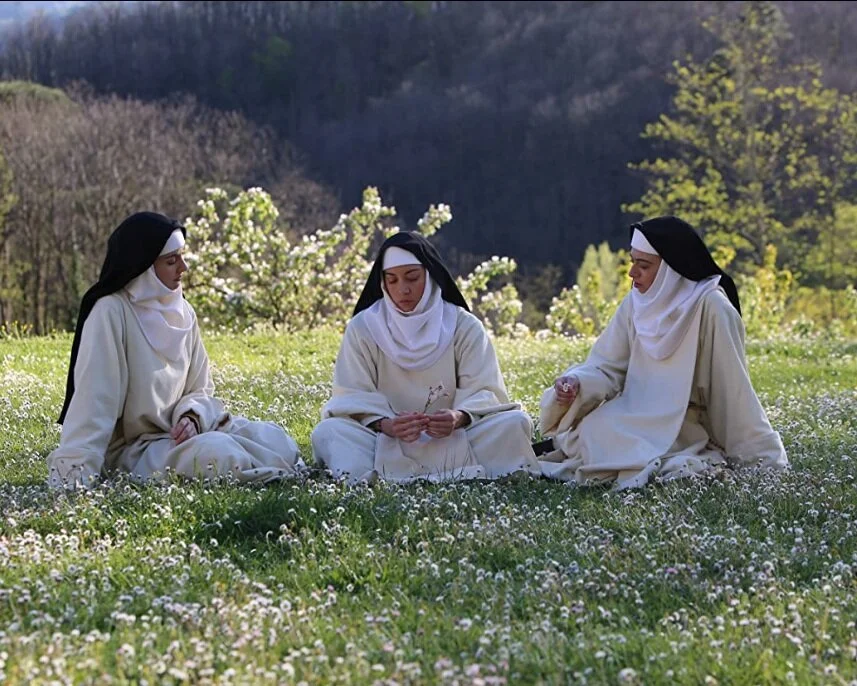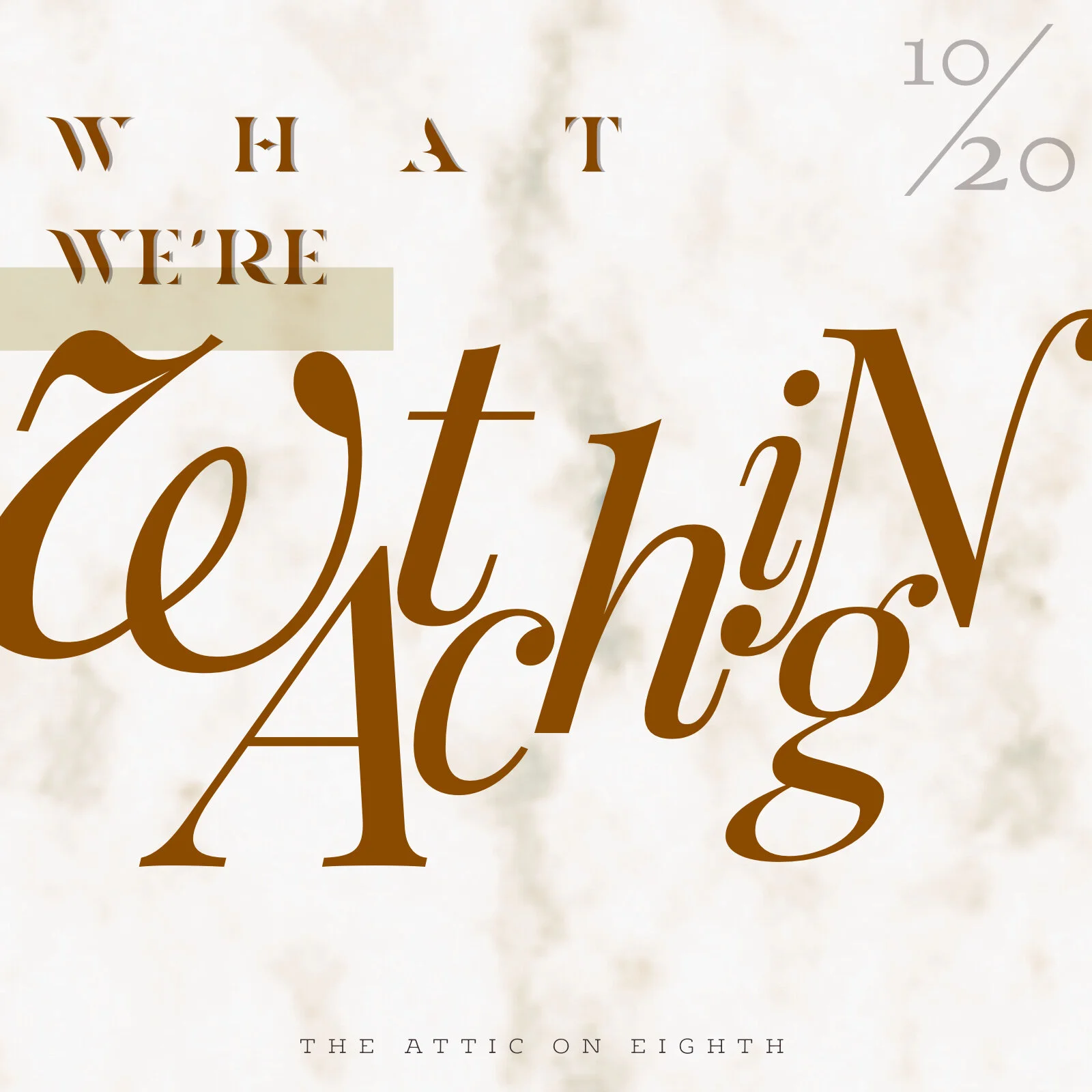Two Films for Winter in Isolation
“I trust my words didn’t offend you... but I heard persons laughing at laughable things.”
All images courtesy of IMDb.
A few weeks ago, I learned something comforting from the news, of all places. The library and personal archives of the late author and philosopher Umberto Eco was given to the University of Bologna, where he taught for thirty years, on a long-term loan. For at least ninety years, over 30,000 rare volumes and materials belonging to one of the twentieth century’s greatest scholars will be held in trust to the Italian culture of ministry and made available to students and scholars. The collection will also be properly conserved. If the significance of this act is lost on the dear reader, then I do not regret my comparatively short selection of Winter Films this year.
Many of us at the Attic feel a sense of security and comfort in certain aspects of monastic living, but it can be a bit much. For me, a once-aspiring Medievalist turned wanton heathen, the season without a social schedule has been maddening. My recreational reading list and my watch list has as much rhyme and reason as a young child with a kazoo. Creating one’s own schedule of contemplation and study, combined with chores and content creation with the faint hope that someday, one of my book publication efforts will be rewarded, is a level of asceticism for which I frankly did not sign up.
The following films tell the stories of those actually committed to the cloister, few of whom volunteered for ecclesiastical service. If there was already an heir to the family name, younger sons of noble families were often ‘surrendered’ to the Church. Excess daughters were more readily donated, as paying a stipend to the local covent could be less expensive than a dowry. Some thrived, others didn’t, and the majority are lost to history. The following characters are fictional, yet primary sources from this era abound. Both illustrate that, throughout time, suffering within restrictive societal structures beyond our control has never been without precedent.
The Name of the Rose (1986)
There’s very little more #darkacademic than wearing a thick wool cowl in the freezing scriptorium of a remote abbey, translating and transcribing ancient, forbidden texts while your peers mysteriously drop dead one by one in increasingly apocalyptic-themed ways. Umberto Eco’s debut novel The Name of the Rose (1980) is a must-read for history enthusiasts, writers, and true crime junkies alike. The film adaptation is not as layered or lengthy, but is a master class of casting and production design.
The story follows a young monk and his mentor as they seek to uncover the cause of a seemingly supernatural murder spree. More through generally being nosey than being asked to investigate, the two become embroiled in the inner politics of the abbey and its surrounding town. Fueled by his pursuit of knowledge, and not a little pride, William and Adso search for answers that may lie within the abbey’s secret library. Who could blame them? Mysterious murders aside, the primary reason for their visit goes all the way to the top, and soon the Inquisition becomes involved. That’s when things really get weird.
Far from my light, general synopsis and the US poster, which presents the film’s tone as somewhere between The Neverending Story (1984) and The Princess Bride (1987), The Name of the Rose is a modern classic that seems far older than it is. Although centered on a class of mostly old, privileged white men, the topics addressed include homophobia, misogyny, witchcraft, and the completely stratified class system of the medieval period. Reader or watcher beware: it is grisly, ugly, and perfect for feeding the demons of your subconscious.
the Little Hours (2017)
For me, The Little Hours recalls a warm summer night in Washington, D.C. My friend Honey Badger and I had just finished a meal of quesadillas made with fresh guacamole, and perhaps one too many margaritas. Her husband, who has a very specific set of skills, chaperoned us to the theater. We had been anticipating the film for ages, its Bling Bling fueled trailer and a cast boasting comediennes Aubrey Plaza, Alison Brie, and Molly Shannon were automatic draws. It was not quite what we expected, but upon rewatching it recently, its departure from the trailer may be one of the film’s strengths. The acoustic soundtrack and views of the Italian countryside were also a balm.
Based on the First Tale on the Third Day of The Decameron, a collection of stories compiled by the 14th century author Boccaccio, The Little Hours is not as out of step with ‘the masterpiece of classical Italian prose’ as one may assume. The Decameron is recommended reading especially for our trying times, as the characters telling the tales are in quarantine after fleeing from the Black Death. The reader may not be spending lockdown in a Tuscan villa, but it’s pleasant to pretend. The mostly improvised language used in The Little Hours may be too anachronistic for some viewers, however its usage is not dissimilar to Boccaccio’s work, which itself is an example of Florentine vernacular literature. If ribald humor is a concern, then not only is The Little Hours not for you, but The Decameron will be entirely too much.
One of The Decameron’s major themes is the power of Nature as an unstoppable force, often citing love and lust as equally powerful imperatives. The distinction wasn’t clear enough for some; the Catholic Church placed the collection of stories on an official list of Prohibited Books in 1559, and it was banned in the United States until the 1930s. After its initial release, the Catholic League condemned The Little Hours as “trash, pure trash,” which became a tagline for the film’s promotional materials. A first-year Female Studies major could spot the emphasis on female sexuality, even just its existence, as the root of these complaints. Far from the bleak footpaths of The Name of the Rose, Boccaccio encourages us to indulge in merriment, and his legacy provides that in abundance when it is most sorely needed.
Zoë G. Burnett is a writer and film enthusiast based in Massachusetts. A lover of all things spooky and sparkly, she is currently working on her first book about witchcraft and classic style. Zoë is the Media Editor of The Attic on Eighth.











In her latest, Grusha Singh delves into the world of publishing as seen on screen and what makes it such a popular occupation for main characters in romantic comedies.